The one thing I could still do
A routine emerges from a strange, tough summer. Also: new books by Jami Attenberg, and Desiree Zamorano along with why I love reading Judith Hannah Weiss
Before we begin…
When you hear the word, “routine,” do you want to embrace it or run away? Do you find routines constraining or liberating? When has having a routine made a difference in your life, either positive or negative?
Welcome! You’ve reached Spark. Learn more here or just read on. If you received this from a friend, please join us by subscribing. Heads up: this edition runs a little longer than usual (but it’s worth it!). If you don’t see the whole thing in your inbox, just click the headline above to come on through and read everything all at once.
Reader, it happened
There is a certain feeling that comes when I do something that I set out to do and that feeling is surprise. I’m a former newspaper reporter who used to freeze when she saw a deadline coming. I’m a goal-setter who doesn’t quite believe she’ll reach those goals but is happy to get close – or even a quarter of the way there. So, when I told you all last spring that I was going to publish Spark every other week instead of weekly so I could use the summer to finish the current version of my novel – the version that would be complete enough to begin the serious rewriting that will bring the project home. I hoped, but didn’t expect, it to happen.
Reader, it happened. In the stack you see below lies a novel with a beginning, a middle, and an end.
It is a story. Now I just have to make sure I tell it as well as I can. This will mean rewriting, tossing pages, adding pages, getting help, drinking coffee (but not so much that I can’t sit still), avoiding thoughts that rob me of confidence, and reading writers who divert me, open me up, and, often, inspire me. I’m not in any way done but I’m where I said I would be. That’s something to hold onto, at least for the moment. And it makes me want to keep going.
The odd thing is that I struggled with everything but writing this summer. I was mired in memories and grief that came with a side of depression. My ability to focus on much of anything involving my brain deserted me by early afternoon along with my reserves of physical energy and tolerance for social interaction. I let anything that could wait, wait. Even things I loved and cherished like my regular Italian lessons went on hold and even though I felt the progress I’d made slip away, I understood more than ever that I can’t do everything I love at once. I understood too, at some level, that it would get easier again and it has thanks to the love and support of friends and family, a good therapist, and a routine that began to emerge when I returned from the East Coast in July.
My eyes would fly open around 5:30 in the morning whether I’d slept much or not. So I just got up, made coffee, fed the dogs, and wrote. By nine o’clock I’d had close to three quality hours. I got to escape myself and the world by working on my novel. When I was done, I felt a sense of relief - biggest frog swallowed and all that. The rest of the day opened up. I learned that if I walked the dogs right after finishing instead of waiting until the late afternoon, I would not only be swallowing another metaphorical frog but giving myself a new start on the day.
This routine was cemented when I turned right instead of left at the bottom of our hill and headed to downtown Ocean Beach, home of a million local coffee joints. I’m now a regular at Val’s. I bring my porcelain demitasse cup with me along with the dog poop bags, treats, and a sense that no matter what happens for the rest of the day, I’ve already had a good one.
I’m clinging to this routine, trying not to think about it anymore. I want it to be like a school uniform is for some students: restrictive in one sense, liberating in another. There is no decision to make if I just get up and follow the path ahead of me. This hasn’t quite gelled into a habit yet and there have been challenges – trips to the veterinary ER, pre-existing appointments, a prolonged reaction to a Covid/Flu vaccination that have recently derailed me – as if the universe is testing me. I have every incentive, though, to return as quickly as I can to my budding routine. The stack of paper sitting on my desk right now shows me it works.
Another thing that’s been working: the new biweekly schedule for Spark. I am going to continue it for now although you may get the odd missive in between issues. I’ve learned that no one goes into withdrawals when they get two issues a month instead of four. My ego has absorbed the lesson. The new rhythm has become part of the routine that’s working. So, thank you for showing me the way and for supporting me and all my writing.
So, what about you and those routines? Love ‘em? Hate ‘em? Do you use them or do they use you?
That’s all about me today. The rest of this week’s newsletter is devoted to three writers I admire and want you to read.
A few words from Jami Attenberg
With her project #1000wordsofsummer, Jami Attenberg has shown how sharing what has worked for her as a writer can lead to community and growth of individual writers. She’s also shown how it works for her with nine books - seven novels, a memoir, and an anthology of the essays writers have contributed to the #1000wordsofsummer project. I’m a fan as you’ll see if you take a look at this post from January 2022. Jami’s latest novel, A Reason to See You Again, launches on September 24.
I’ve pre-ordered it and you can too by heading to your local bookstore or anywhere books are sold. As part of her roll-out, Jami invited folks to ask three questions about anything we wanted to know. I didn’t need to be asked twice. Here’s what she offered us about writing that leaves us vulnerable, the role of a dog in a writer’s life, books she returns to, and the books of her own that she loves best.
Q: The first time I learned of you and your work was when you came to a small salon here in San Diego and read a section of a novel that never made it into the final draft. It struck me as incredibly vulnerable and exciting to read work that was still in process to a bunch of strangers. How does doing something like this feed you as a writer? What’s the most vulnerable thing you’ve ever done to get to the place you needed to go in your writing?
JA: Oh gosh that was a long time ago! I love to read work in progress to an audience to see what works and what doesn't. It's sort of like a comedian trying out all his new jokes to see what gets a laugh. I learn from those experiences every time.
Honestly the most vulnerable writing I've ever done was with my memoir. There were stories in there I had to revisit several times over the course of years to see how I felt about it then versus now. And there was really intimate stuff that I wrote for that book that I ended up throwing away, but there are at least a few people who have read all the pages and know my deepest secrets even if the rest of the world doesn't. (Thank goodness.) I had to write it all down though--and let someone read it--in order to throw it away. That definitely was a vulnerable time in my life.
Q: Launching myself as a full-time writer coincided with the entrance of dogs into my life. I’ve sometimes struggled to reconcile these two relationships but I am not able to give up either one. How does having a dog in your life impact you as a human and as a writer?
JA: When you work from home a lot of the time, it's good to have a loyal companion to sit by your side or near you anyway. It makes you feel supported and often they entertain you. But as a counterpoint, dogs force you to take them on walks, so then you're getting outside of the house and interacting with the world, and that's a healthy activity. Dogs have favorite places they like to go--my dog makes me go to the same cafe every morning for treats whether I'm buying a coffee or not!--and eventually you will build a relationship with that place, even if it's just a pleasant hello. Ditto with dog parks. They're the most sociable of pets and writers, notoriously antisocial beings, benefit from that. Dogs are also imperfect, and it is a nice distraction from the matters of life or work to train them or at least contend with their imperfections, which are often adorable or at least endearing. I could go on. Dogs are little angels and I love them.
Q: My copies of St. Mazie and The Middlesteins are dog-eared and battered from re-reading because you did something in these two books that both delighted and taught me something about voice and structure. What books do you return to as a reader and why? (and if you care to answer — which of your own books is your favorite?)
JA: This is so nice to hear! Thank you! I must admit I am not much of a re-reader of an entire book but I will certainly pick up books and re-read the first few pages or a paragraph or so just to rev up my engine. When you see the master doing it, it teaches you how to begin again. Like I'm re-reading the beginnings of anything by Toni Morrison? Yes. Sometimes I'll flip through my copy of the collected stories of Grace Paley, or through Raymond Carver short stories, though it's been a while. There's an essay by Jonathan Franzen on autobiographical fiction that I have found really helpful lately and I did read it a few times. Also I re-read Alex Chee's How to Write an Autobiographical Novel recently while I was putting together some ideas for a talk, but also because I missed Alex because I hadn't seen him in a while. I'll re-read Ada Limon poems because her words tend to rouse and inspire me. Primarily I re-read things to get me going if I feel timid or slow. Most of the books on my shelf tend to have pretty good first paragraphs in general, though.
I don't have a favorite! I love them all for one reason or another. Mazie is my favorite though in terms of spirit and message. I loved that old gal so much.
Jami’s official bio, her books, and links:
Jami Attenberg is the New York Times bestselling author of nine books, including The Middlesteins, All Grown Up and a memoir, I Came All This Way to Meet You: Writing Myself Home. She is also the creator of the annual online group writing accountability project #1000wordsofsummer, which inspired the recently published USA Today bestseller 1000 Words:A Writer’s Guide to Staying Creative, Focused, and Productive All Year Round. Her tenth book, publishing September 24, 2024, is A Reason to See You Again. She lives in New Orleans. You can find her online regularly at Craft Talk.
Desiree Zamorano wants you to see
Writers are often advised to write the novels they want to see in the world. Desiree Zamorano took the advice to heart. In her interview with supsense novelist Laura Lippman about her newest novel, Dispossessed, Desiree quotes Robert Bresson, “Make visible, that which without you, might never be seen.”
In Dispossessed, she tells the story of the two million Mexicans Americans and Mexican nationals who were expelled from the United States from the 1930s to the 1950s by focusing on the coming-of-age of a single child, Manuel. Manuel is separated from his parents and his beloved sister by the forces none of them can control.
It is a story rooted in California’s history that remains relevant today. My copy arrived just as I was typing this post and my fingers are itching to open it.
I read Desiree’s first novel, The Amado Women, shortly after working with her on a panel at a women’s writer’s conference in Los Angeles. The matriarch and three sisters at the heart of The Amado women leapt off the page and still reside in my memory and heart. I fully expect that Manuel will do the same. I’m looking forward to finding out.
This essay explains a bit more about how the novel came to be and lets you in on the journey Desiree has been on as a writer, teacher, and storyteller. I look forward to doing a Q&A with her after reading the novel and sharing more about them both with you.
If you like what you see or it resonates with you, please share Spark with a friend and take a minute to click the heart ❤️ below - it helps more folks to find us!
What if all the words you knew just disappeared? Or, why I read Judith Hannah Weiss
“The universe could survive without writing, much as it did for the first trillion years before writing was born. But it’s deeper, funnier, wilder, more inventive, vibrant and bravely imagined when you add words.” -
from a recent chat on Substack.
But what if all the words you used to make the world funnier, wilder, more inventive were taken from you and scattered any which way? What if you had to struggle to find those words again and, once you’ve found them, hold onto them?
In 2006, the car containing freelance writer Judith Hannah Weiss was crushed by a drunk driver. When she came to in the hospital, she’d lost all but two words. Since then she has, painstakingly, retrieved them and, even more painstakingly, put them together in ways that suprise, delight and, often, cut to the heart of things we usually dance around or have no idea how to talk about.
Her Substack, Dispatches From Bewilderness, is part memoir, part social commentary. Among my favorite recent posts are Reptile Dysfunction, I Can Forget it for You…, Retail, Disappeared, and this one which made me cry: If We Had Known. You can also find writing at
, here and here.Welcome New Subscribers!
If you’ve just subscribed, thank you so much for being here. If you would like to check out past issues, here’s a quick link to the archives. Be sure to check out our Resources for Readers and Writers too where you will find links for readers, book clubs, writers, and writing groups. And if you’d like to browse for your next read, don’t forget to check out books by authors in our community at the Spark Author Page which will be updated with new names and books for next week’s issue. Another great source: the many wonderful reviews you’ll find among the #Bookstackers.
The more the merrier! Please share with your friends and invite them to join us!
Ways to show you like what’s happening here
We don’t do paywalls here but we do work hard so if you’d like to show your support for Spark, here are some ways to do that:
Consider a paid subscription ($5/month or $35/year) or use this as a link that will allow single contributions of any amount via PayPal.
All subscribers will still have access to every post, archives, comments section, etc. If finances are an issue (and when are they not?), you can still show your support for Spark by participating in our conversations, “liking” a post by hitting that heart, and by sharing Spark among your friends. All of these things help bring new subscribers into the fold and every time we expand our audience, the conversation grows and deepens.
Let me know how you are and what you’re reading. If there’s an idea, book, or question you’d like to see in an upcoming issue of Spark, let us know! Use the comment button below or just hit reply to this email and send your message directly.
And remember, If you like what you see or it resonates with you, please take a minute to click the heart ❤️ below - it helps more folks to find us!
Ciao for now!
Gratefully yours,
Betsy
P.S. And now, your moment of Zen…after the monsoon in Gila National Forest
Subscriber Janet G. of California was in Gila National Forest in early August. The rains came. Then this.
Calling for Your Contribution to “Moment of Zen”:
What is YOUR moment of Zen? Send me your photos, a video, a drawing, a song, a poem, or anything with a visual that moved you, thrilled you, calmed you. Or just cracked you up. This feature is wide open for your own personal interpretation.
Come on, go through your photos, your memories or just keep your eyes and ears to the ground and then share. Send your photos/links, etc. to me by replying to this email or simply by sending to: elizabethmarro@substack.com. The main guidelines are probably already obvious: don’t hurt anyone -- don’t send anything that violates the privacy of someone you love or even someone you hate, don’t send anything divisive, or aimed at disparaging others. Our Zen moments are to help us connect, to bond, to learn, to wonder, to share -- to escape the world for a little bit and return refreshed.
I can’t wait to see what you send!
And remember, if you like what you see or it resonates with you, please share Spark with a friend and take a minute to click the heart ❤️ below - it helps more folks to find us!




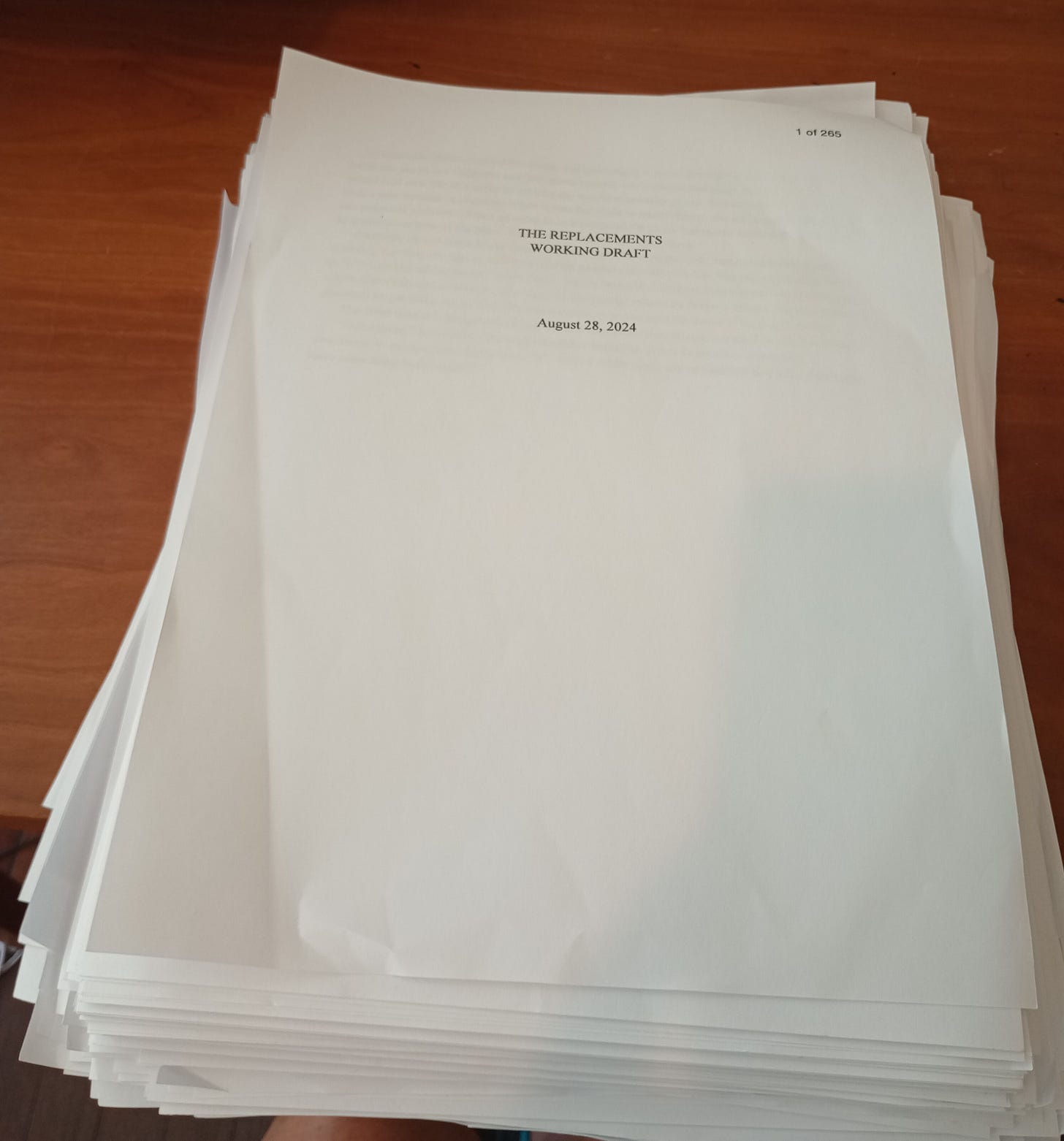
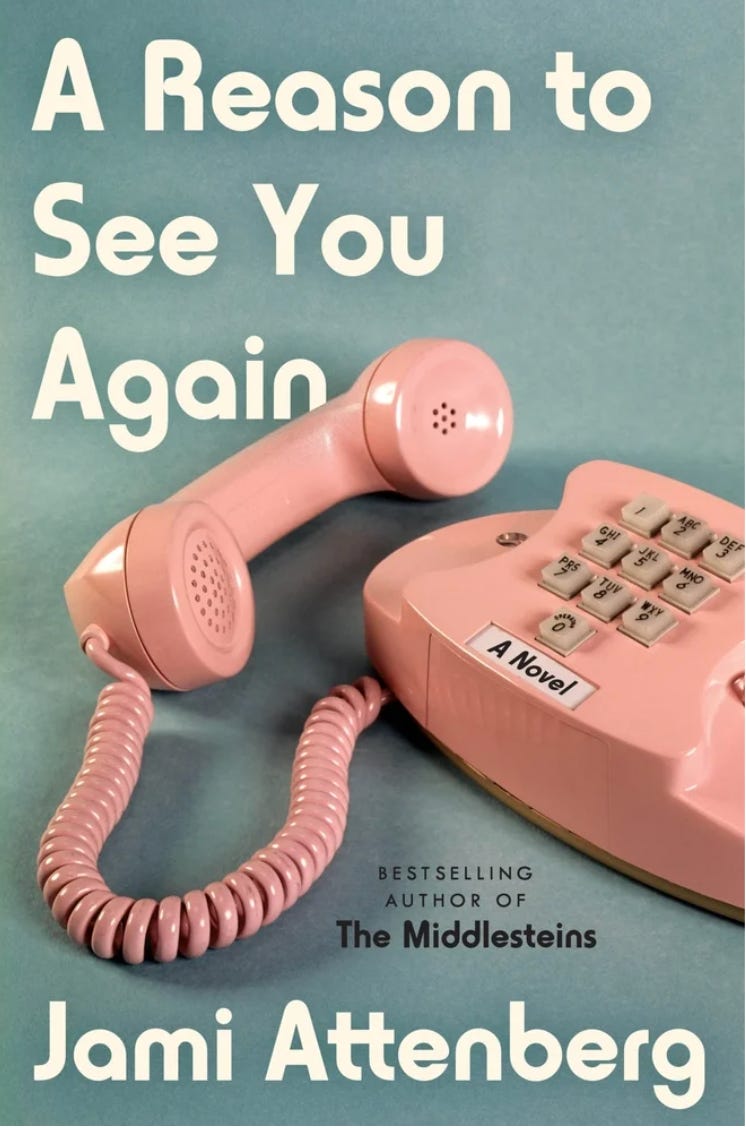
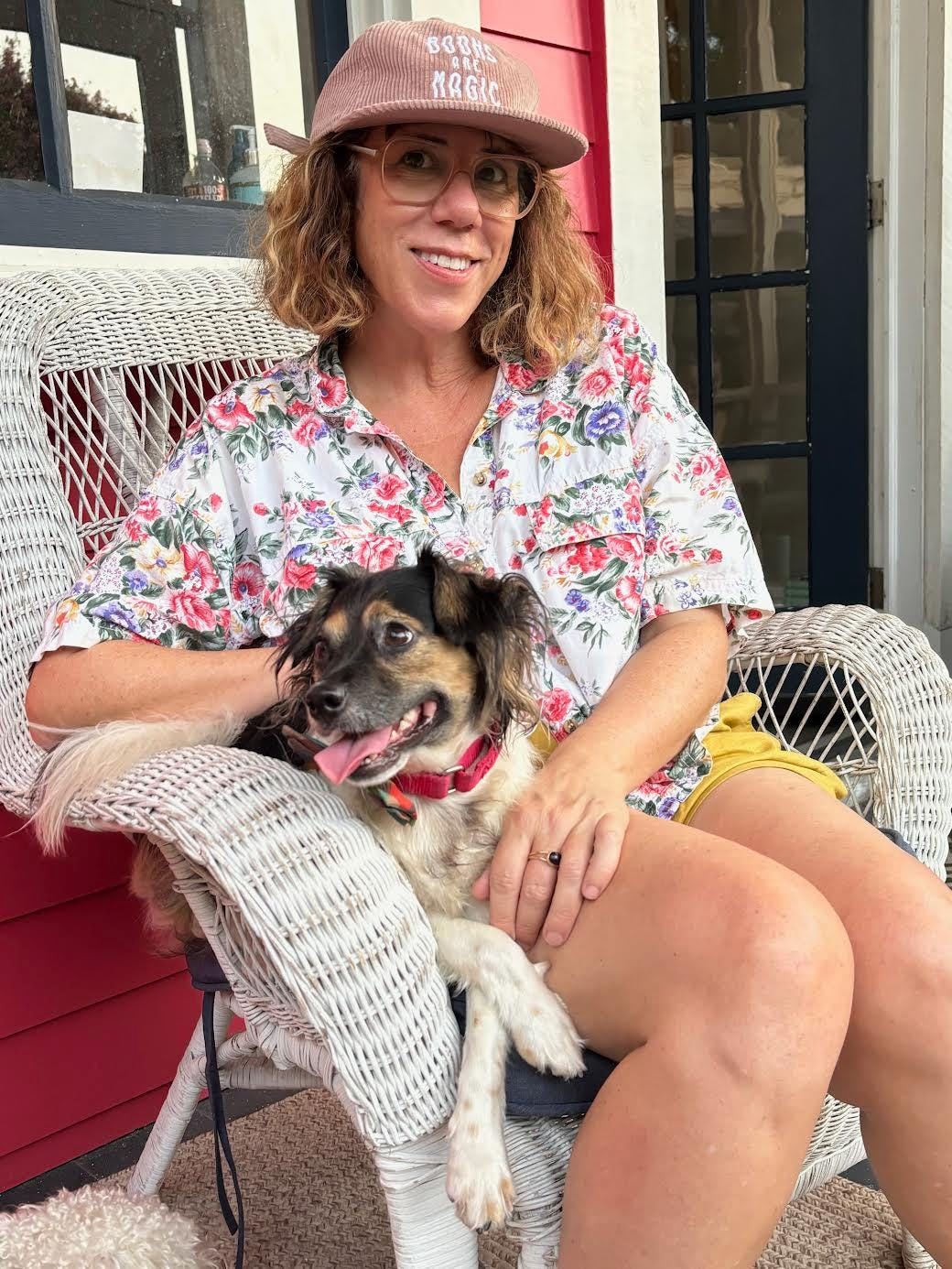
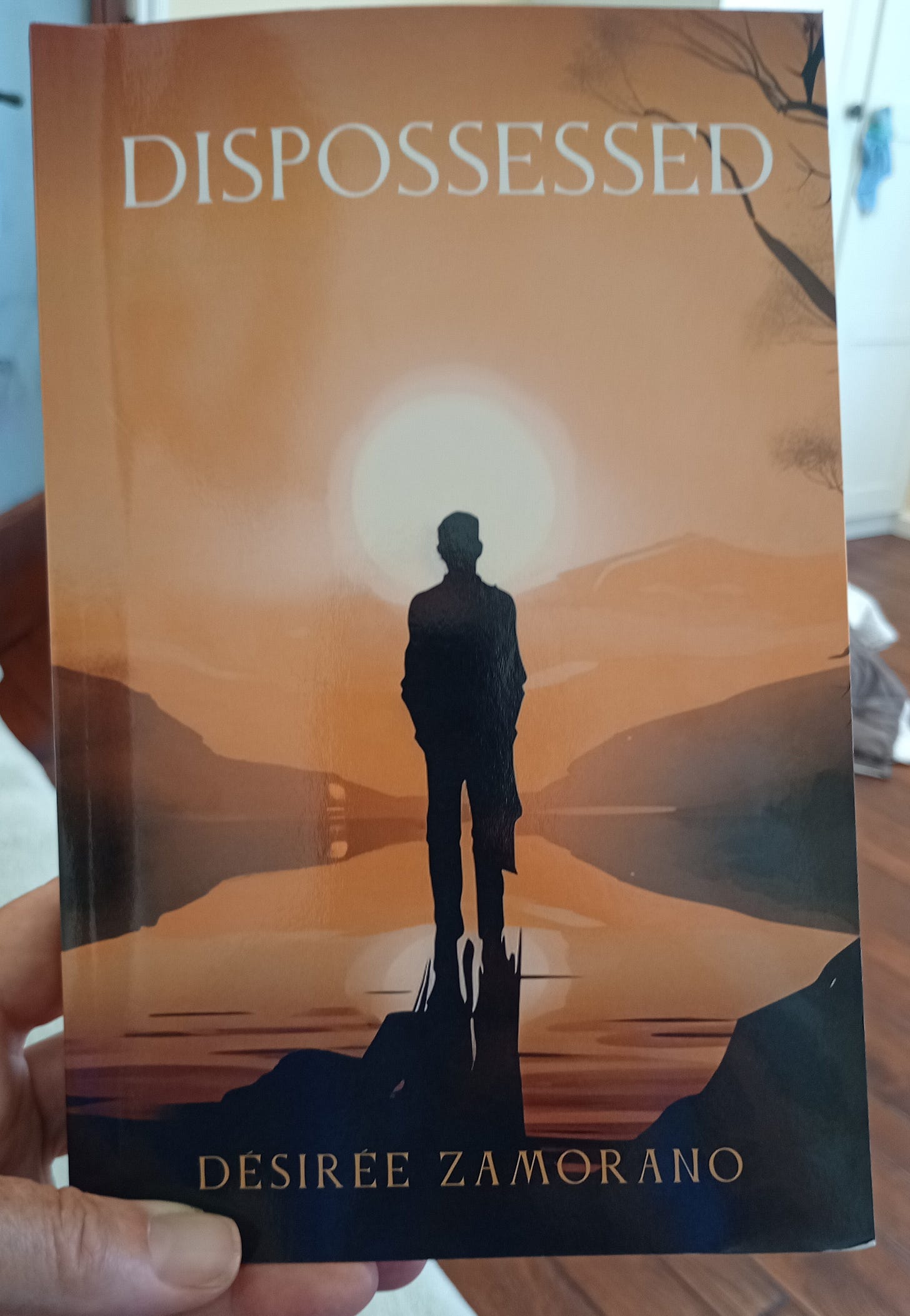
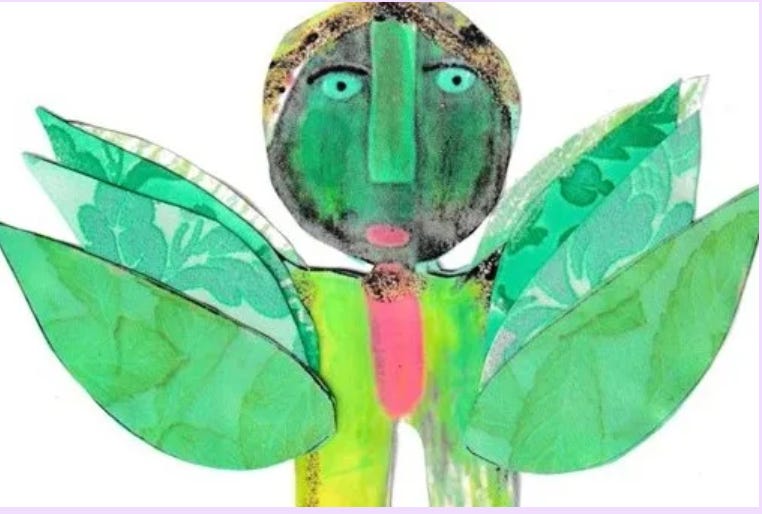
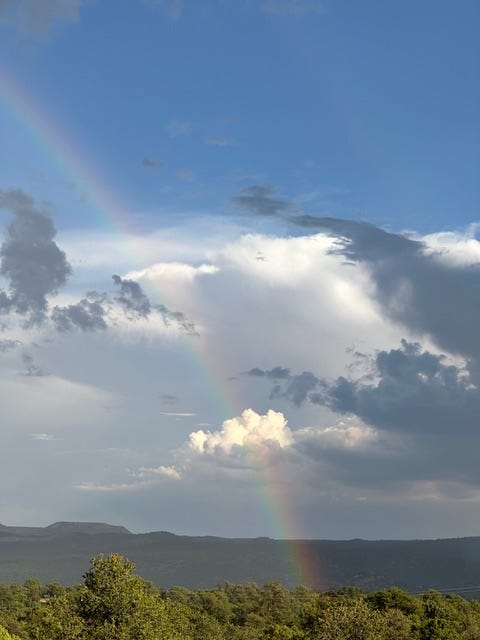
The description of your routine resonated--how it is something of a bewildering thing that you surrendered to and then held on for dear life. The untidy nature of it makes so much more sense to me than the sort of mystical, instagram-ready descriptions of writer routine that I have read elsewhere. Thank you for that. It encouraged me in my own messy attempts.
Congrats, Betsy! I finished my novel this week too. Yay for us!